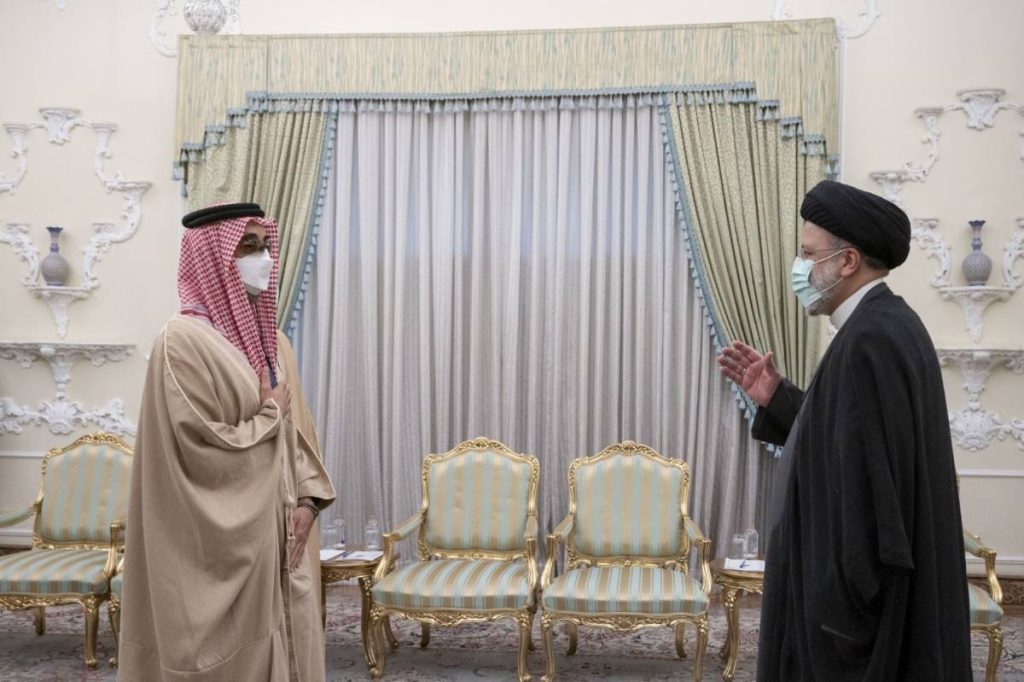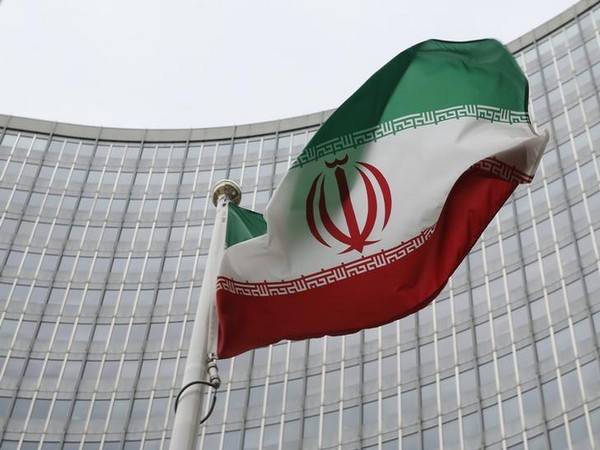Sheikh Abdullah highlighted the UAE’s keenness to enhance the security and stability of the region, during a phone call with Iranian foreign minister Hossein Amir-Abdollahian, reports Asian Lite Newsdesk
UAE Foreign Affairs Minister Sheikh Abdullah bin Zayed Al Nahyan and his Iranian counterpart Hossein Amir-Abdollahian, have discussed means of boosting bilateral relations and areas of cooperation for the benefit of both countries.
This came in a phone call wherein the two foreign ministers exchanged views on a number of international and regional issues of common concern.
Sheikh Abdullah highlighted the UAE’s keenness, under the leadership of President Sheikh Mohamed bin Zayed Al Nahyan, to enhance the security and stability of the region, meet the aspirations of its peoples for development and prosperity, and support all efforts made in this regard.
In the recently concluded Jeddah Security and Development Summit, the leaders renewed their call on Iran to fully cooperate with the International Atomic Energy Agency, and with countries in the region to keep the Arab Gulf region free from weapons of mass destruction, and to preserve security and stability regionally and globally.

Meanwhile, in April, Dr Anwar Gargash, Diplomatic Adviser to President, affirmed UAE’s keenness to build bridges of dialogue and cooperation with all its neighbours, including Iran and Turkey, to promote regional security and stability.
Gargash underscored the UAE “will always resort to diplomacy, negotiation, and economic cooperation”. He said under the current changes in the region, it is necessary to manage matters peacefully with countries that have different policies and views, by working on the common grounds and putting differences aside.
“For example, Iran is a neighbour and therefore we endeavour to establish the best relations with it. We see that Turkey is a partner in our joint endeavour to prosperity and we continue to support the prospects of the Abraham Accords,” he said.
He said change is undoubtedly a constant feature of the world, talking about change necessarily involves discussing the international order.
“As such, we in the UAE have to carefully monitor changes in the international order and their implications on the regional order, which consists of Arab and Gulf states as well as countries such as Iran, Turkey, Pakistan, and India,” he said.

Nuclear deal revival
Meanwhile, Iranian Foreign Minister said that his country “welcomes the continuation of diplomacy and talks” to rescue the 2015 nuclear deal.
Amir-Abdollahian made the remarks in a phone conversation with European Union (EU) foreign policy chief Josep Borrell after the EU’s top diplomat proposed a new draft text to restore the nuclear deal, formally known as the Joint Comprehensive Plan of Action (JCPOA), reports Xinhua news agency.
The Minister reiterated that Iran is “determined to reach a good, robust and lasting deal”, urging the US to move “realistically toward finding a solution and reaching a deal”.
Washington “has always claimed that it wants a deal, so this must exist in the wording of the agreement and also in practice”, he added.
Borrell noted in an opinion piece published by the Financial Times on Tuesday that he has put a text on the table as he has “concluded that the space for additional significant compromises has been exhausted”.
“This text represents the best possible deal that I, as facilitator of the negotiations, see as feasible,” he wrote, adding that “I see no other comprehensive or effective alternative within reach”.
Iran signed the JCPOA with the world powers in July 2015, agreeing to curb its nuclear program in return for the removal of sanctions on the country.
However, former US President Donald Trump pulled Washington out of the agreement in May 2018 and reimposed unilateral sanctions on Iran, prompting the latter to drop some of its commitments under the pact.
Talks to revive the deal began in April 2021 in Vienna but were suspended in March this year because of political differences between Tehran and Washington.
Both sides held indirect talks in Doha of Qatar late in June but failed to settle their differences.

Leave a Reply